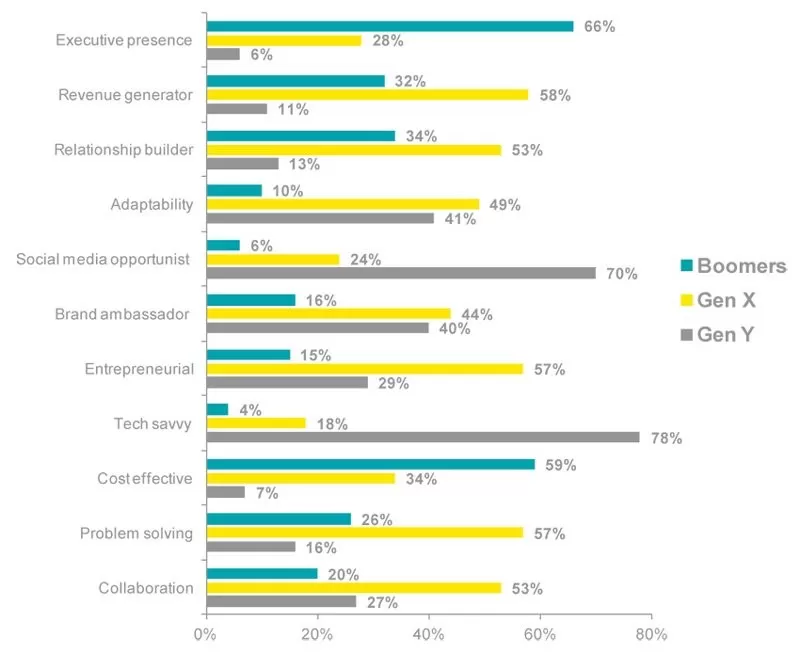
There are now at least four generations in the workforce which can present both opportunities and challenges. A multi-generational workforce has an ability to blend the unique experiences and skill sets of each generation into one shared mission. However, with this blending can come some challenges, especially when it becomes evident that each generation possesses a different mindset and attitude about work.
The generations that find themselves colleagues are: Vets/Traditionalists, Baby Boomers, GenXers, Millennials/Gen Y, and soon to be Gen Z. It is not uncommon to see a 58-year-old Baby Boomer on a work team with 24-year-old Millennial while reporting to a 41-year-old GenXer. Traditionalists (also referred to as Vets) are fewer in numbers but often retain a position of power and influence. We can all think of at least one example of an older PI who has no plans to retire anytime soon.
Dates and categorizations of generations often vary according to source but generally the breakdown is as follows: Traditionalists/Vets – born between 1920-1943; Baby Boomers – born between 1944-1960; Generation X – born between 1961-1980; Millennials/Gen Y – born between 1981-2000; and soon to Gen Z – Born between 2001-present.
Boomers, Gen Xers and Millennials have the highest numbers in the workplace and many have tried to identify the key strengths and challenges for each generation. For example, an organization, EY analyzed the characteristics – both positive and negative – of these three main generations, including how they are perceived by others.
The collective personas of each generation are frequently discussed and debated. Boomers are often seen as productive, hardworking team players who are devoted to organizations, but they are also often viewed as the least adaptable and tech savvy. Gen Xers are often seen as adaptable, entrepreneurial problem solvers, but they are also often viewed as cynical about authority figures and disliking traditional or rigid work environments. Millennials are often seen as passionate, globally-minded, and efficient multi-taskers; however, they are also often viewed as self-entitled and lazy.
Antagonistic exchanges between members of different generations often get a lot of attention and it can be easy to simply focus on differences. Remember though that generational terms, like Boomers, Xers and Millennials are often oversimplified labels. Sure, each generation does develop a certain kind of collective identity, but individuals in each generation may not exhibit any of the characteristics commonly associated with their generation. Knowing each generation’s general characteristics might be helpful in better understanding an individual who belongs to that generation, but there is bound to be a lot of variability as well, so beware of generational generalizing.
If this is a topic that you’d like to learn more about, you might be interested in signing up for OITE’s Workplace Dynamics workshop series. And lastly, just for fun, you might want to take this quiz offered by Pew on “How Millennial Are You?”
Categories
Management




